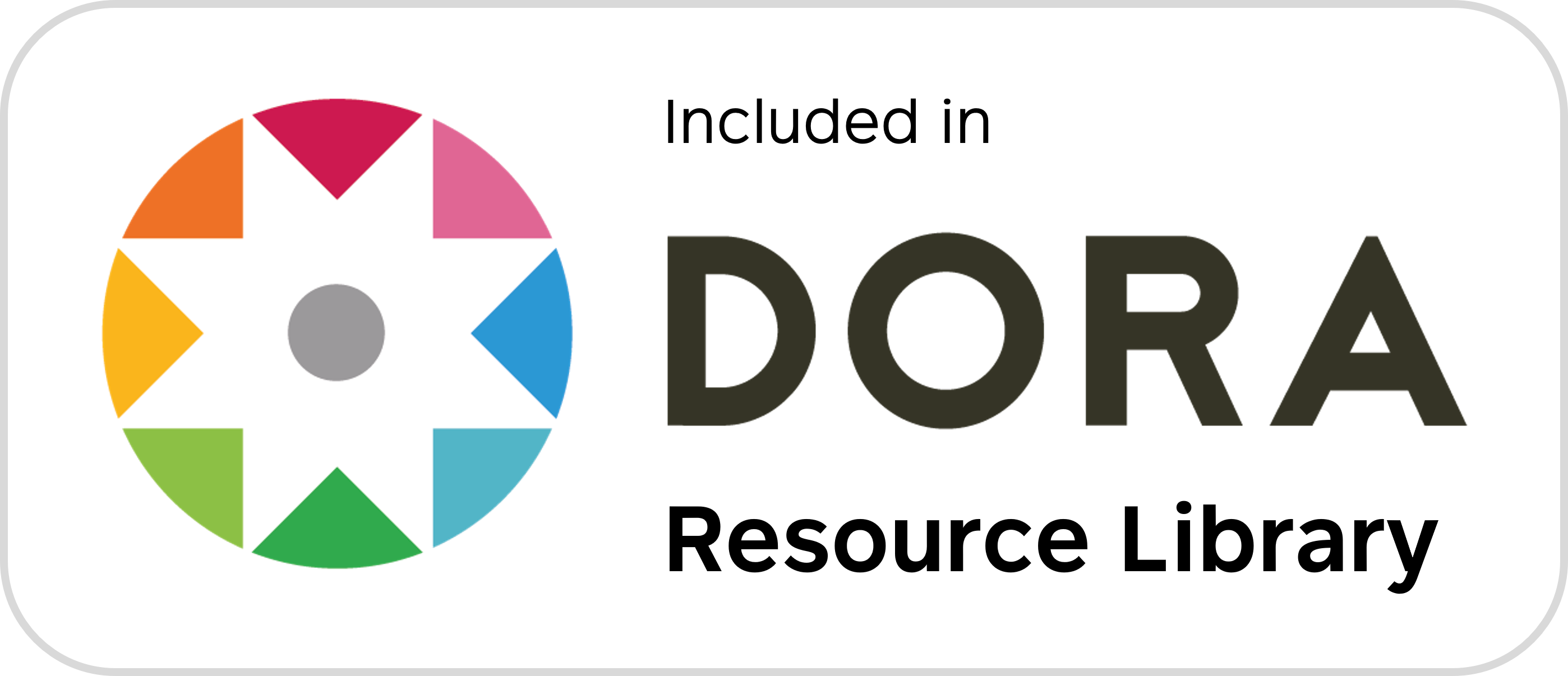Enhancing Regional STEM Teacher Development: Strategies and Insights from Professional Learning Facilitators in Afghanistan
Keywords:
Education quality, STEM, Teacher professional development, Afghanistan, International educationAbstract
Objective: The purpose of this study was to gain insights into how Professional Learning Facilitators PLFs promoted STEM teacher learning in Afghanistan’s regional context. It aims at uncovering best practices of the facilitators and its teacher educators to inform sustainable professional development approaches seeking to address the specific reality of the Afghan context.
Methods: A mixed-methods approach was employed, consisting of qualitative interviews with PLFs and a survey of STEM teachers in some regional areas of Afghanistan. Descriptive statistics and thematic analysis were used to analyze data and identify trends and common strategies to enhance teacher learning.
Results: Responding to challenges arising from the regional context, PLFs in Afghanistan work through a combination of hands-on workshops, collaborative learning environments, and context-sensitive content. These approaches have increased engagement among teachers and enhanced instructional practices despite differing impacts due to geography and resources.
Novelty: It fills a unique gap in the literature on education development in post-conflict regions, as we shed light on STEM teacher professional development within the unique socio-political context of Afghanistan.
Theory and Policy Implications: The study can inform the development of change frameworks for professional learning that can be used to ensure professional learning is responsive to the context and the community in which it is situated. It highlights the importance of policies that promote sustained long-term teacher development in contexts affected by conflict should aim to design strategies to develop scale and relevance to context.
Downloads
References
Aguilar, Pilar, and Gonzalo Retamal. 2009. “Protective Environments and Quality Education in Humanitarian Contexts.” International Journal of Educational Development 29(1):3–16. doi: https://doi.org/10.1016/j.ijedudev.2008.02.002.
Arar, Khalid H. 2021. “Research on Refugees’ Pathways to Higher Education since 2010: A Systematic Review.” Review of Education 9(3):e3303. doi: https://doi.org/10.1002/rev3.3303.
Arooje, Razia, and Nina Burridge. 2021. “School Education in Afghanistan BT - Handbook of Education Systems in South Asia.” Pp. 411–41 in, edited by P. M. Sarangapani and R. Pappu. Singapore: Springer Singapore.
Brodsky, Anne E., Galina A. Portnoy, Jill E. Scheibler, Elena A. Welsh, Gitika Talwar, and Amy Carrillo. 2012. “Beyond (the ABCs): Education, Community, and Feminism in Afghanistan.” Journal of Community Psychology 40(1):159–81. doi: https://doi.org/10.1002/jcop.20480.
Brooks, Cameron, Rochelle Burton, Fabienne van der Kleij, Annemaree Carroll, Karen Olave, and John Hattie. 2021. “From Fixing the Work to Improving the Learner: An Initial Evaluation of a Professional Learning Intervention Using a New Student-Centred Feedback Model.” Studies in Educational Evaluation 68:100943. doi: https://doi.org/10.1016/j.stueduc.2020.100943.
Christian, Kimberly B., Angela M. Kelly, and Mónica F. Bugallo. 2021. “NGSS-Based Teacher Professional Development to Implement Engineering Practices in STEM Instruction.” International Journal of STEM Education 8(1):21. doi: 10.1186/s40594-021-00284-1.
Geelan, David. 2012. “Teacher Explanations BT - Second International Handbook of Science Education.” Pp. 987–99 in, edited by B. J. Fraser, K. Tobin, and C. J. McRobbie. Dordrecht: Springer Netherlands.
Kujur, John, Udaya S Mishra, S. Irudaya Rajan, and Hrushikesh Mallick. 2024. “Marginals within the Marginalised: Exploring the Changes in Occupational Pattern among Adivasi Women in the Context of Land Alienation in India.” World Development 182:106715. doi: https://doi.org/10.1016/j.worlddev.2024.106715.
Kutnick, Peter, Clare Gartland, and David Good. 2022. “Evaluating a Programme for the Continuing Professional Development of STEM Teachers Working within Inclusive Secondary Schools in the UK.” International Journal of Educational Research 113:101974. doi: https://doi.org/10.1016/j.ijer.2022.101974.
Little, Angela W., and Andy Green. 2009. “Successful Globalisation, Education and Sustainable Development.” International Journal of Educational Development 29(2):166–74. doi: https://doi.org/10.1016/j.ijedudev.2008.09.011.
Mezirow, Jack. 1997. “Transformative Learning: Theory to Practice.” New Directions for Adult and Continuing Education 1997(74):5–12.
Milton, Sansom. 2019. “Syrian Higher Education during Conflict: Survival, Protection, and Regime Security.” International Journal of Educational Development 64:38–47. doi: https://doi.org/10.1016/j.ijedudev.2018.11.003.
Moncure, Shannon, and Charles Francis. 2011. “Foundations of Experiential Education as Applied to Agroecology.” NACTA Journal 55(3):75–91.
Neuman, Michelle J., and Shawn Powers. 2021. “Political Prioritization of Early Childhood Education in Low- and Middle-Income Countries.” International Journal of Educational Development 86:102458. doi: https://doi.org/10.1016/j.ijedudev.2021.102458.
Raisch, Natasha, Rebecca Bailey, and Stephanie M. Jones. 2024. “SEL Insights: Applying Behavioral Insights to Social and Emotional Learning Programs in Global Settings.” Social and Emotional Learning: Research, Practice, and Policy 4:100056. doi: https://doi.org/10.1016/j.sel.2024.100056.
Sengupta, Koyeli, Sanchita Mahadik, and Gopika Kapoor. 2020. “Glocalizing Project ImPACT: Feasibility, Acceptability and Preliminary Outcomes of a Parent-Mediated Social Communication Intervention for Autism Adapted to the Indian Context.” Research in Autism Spectrum Disorders 76:101585. doi: https://doi.org/10.1016/j.rasd.2020.101585.
Smith, Theila, Lucy Avraamidou, and Jennifer D. Adams. 2022. “Culturally Relevant/Responsive and Sustaining Pedagogies in Science Education: Theoretical Perspectives and Curriculum Implications.” Cultural Studies of Science Education 17(3):637–60. doi: 10.1007/s11422-021-10082-4.
Speakman, Elizabeth M., Ahmad Shafi, Egbert Sondorp, Nooria Atta, and Natasha Howard. 2014. “Development of the Community Midwifery Education Initiative and Its Influence on Women’s Health and Empowerment in Afghanistan: A Case Study.” BMC Women’s Health 14(1):111. doi: 10.1186/1472-6874-14-111.
Subedi, Binaya. 2013. “Decolonizing the Curriculum for Global Perspectives.” Educational Theory 63(6):621–38. doi: https://doi.org/10.1111/edth.12045.
Tanhueco-Nepomuceno, Lourdes. 2019. “Internationalization among Selected HEIs in the ASEAN Region: Basis for a Proposed Framework for an Internationalized Campus.” International Journal of Educational Development 65:152–71. doi: https://doi.org/10.1016/j.ijedudev.2018.07.003.
Downloads
Published
Issue
Section
License
Copyright (c) 2024 Sayedy Javad, Abdullah Qutuby , Bakhshi Naseem (Author)

This work is licensed under a Creative Commons Attribution-ShareAlike 4.0 International License.
Advances Educational Innovation (AEI) © 2024 by Inovasi Analysis Data is licensed under CC BY-SA 4.0



















